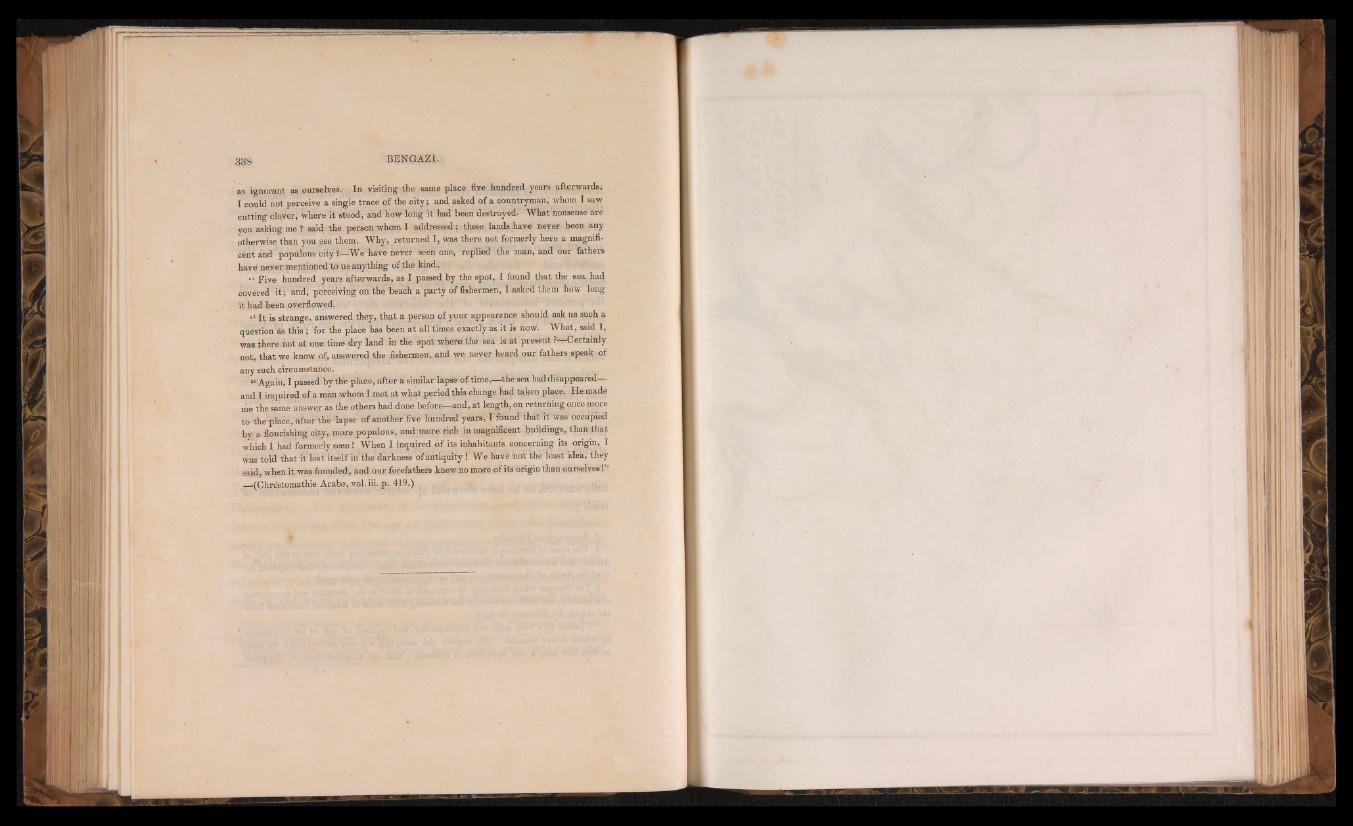
338 BENGAZI.
as ignorant as ourselves. In visiting the same place five hundred years afterwards, .
I could not perceive a single trace of the city; and asked of a countryman, whom I saw-
cutting clover, where it stood, and how long it had been destroyed. What nonsense are
you asking me 1 said the person whom I addressed: these lands have never been any
otherwise than you see them. Why, t returned I, was there not formerly here a magnificent
and populous city ?—We have never seen one, replied the man, and our fathers
have" never mentioned to us anything of the kind.
<£ Five hundred years afterwards, as I passed by the spot, I found that the sea had
covered it; and, perceiving on the beach a party of fishermen, I asked them how long
it had been overflowed.
“ I t is strange, answered they, that a person of your appearance Bhould ask us such a
question *38 this ; for the place has been at all times exactly as it is how. What, said I,
w a s there not at one time dry land in the spot where the sea is at present P^Certainly
not, that we know of, answered the fishermen, and we never heard our fathers speak of
any such circumstance.
“Again, I passed by the place, after a similar lapse of time,—the sea had disappeared
and I inquired of a man whom I met at what, period this change had taken place. He made
me the same'inswer as the others had done before—and, at length, on returning once more
to the place, after;the lapse of another five hundred years, I found that it Was occupied
by a flourishing city, more populous, and more rich in magnificent buildings, than that
which I had formerly seen! When I inquired of its inhabitants concerning its origin, I
was told that it lost itself in the darkness of antiquity ! We have not the least idea, they
said, when it was founded, and our forefathers knew no more of its origin than ourselves!”
(Chrestomathie Arabe, vol.iii. p. 419.)